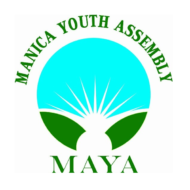Disability inclusion is the understanding of the relationship between the way people function and how they participate in society, making sure everybody has same opportunities to participate in every aspect of life to the best of their abilities and desires.
It is with no doubt that people with disabilities negotiate barriers set up by cultural practices and social attitudes and are frequently viewed as burdens to their families and communities. Usually, they encounter discrimination and disadvantaged based on the complexity junctures of different types of social inequality based on their gender, ethnicity, religion, class, race and sect.
People with Disabilities (PWDs) are exposed to high levels of risk in terms of experiencing the negative consequences of disasters as well as high levels of overall society vulnerable to severe natural disasters such as floods, cyclones and earthquakes.
In a WhatsApp discussion,a Disability Ambassador and Peace builder, highlighted that PWDs complained about the inaccessibility of shelter meant to house them in Chipinge and Chimanimani. Some of them were unable to use ablution/sanitation facilities as they were disability friendly. There was lack of inclusion of PWDs in humanitarian interventions and lack of service provision directed to them leaves them vulnerable and hopeless. In this case, PWDs were treated among vulnerable groups yet they require special assistance. It is therefore important to note that little access to relief and rehabilitation facilities for PWDs serve to seal the social exclusion of them.
Furthermore, there are inadequate policies in emergencies with a proactive approach aiming at identifying and removing exclusion factors which prevent PWDs from accessing relief services. Also, there is lack of disability awareness mainstreaming among the large variety of stakeholders that typically take part in humanitarian interventions to coordinate their efforts to ensure that disability is included in their projects.
In Zimbabwe, we have the Department of Civil Protection Unit which is responsible for coordinating the management of disasters. This is done through the National Civil Protection Co-ordinator Committee which pools together government departments, parastatals and NGOs. A gap that has been recognized is lack of well-defined finding mechanisms to properly manage disasters in the country which is the major issue which can lead us to achieving inclusiveness. There is also lack of comprehensive fiscal support from the government to capacitate the operations of the unit during disaster periods. With global warming, floods and an extreme weather will worsen over the coming years.
However, the Ambassador said: “It is important to promote the rights of people with disabilities through effective participation at all stages of the disaster management process and especially during planning.” Preparedness can significantly reduce their vulnerability and increase the effectiveness of government response and recovery reduction through giving them opportunities to amplify their voices as well as meeting their needs.
At this juncture, as MAYA, we voice that there paramount need to advocate for the revision of Civil Protection Unit Act since it is one of the most important entry points for disability inclusion. This will lead to the changes of the legislation as it is not disability inclusion. The Civil Protection Act was enacted in 1989 and it has to revised to allow inclusion of disabled people.
